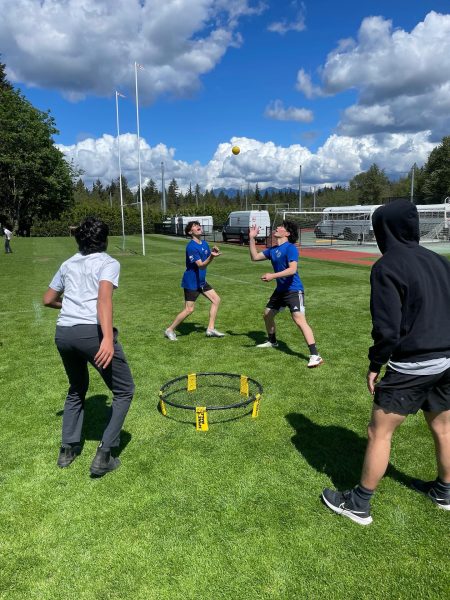Are video games making us violent?

Ever since the Colombine shootings parents have started taking a closer look at the games there kids are playing. Over 90 percent of teens in the United Stated play video in bete games and 90 percent of those games contain mature subject mature. While there has been no direct link
Many media sources frequently link videogames to the perpetrators of violent events. The most famous of these is the Columbine School Shooting in 1999. Seniors Dylan Klebold and Eric Harris killed 13 people and injured 23 before shooting themselves. Both shooters frequently played Doom and Wolfenstein 3D, two violent videogames. Although this is the most famous, many other cases of teenage violence have been linked to videogames.
In 1999, prompted by the Columbine shootings, President Bill Clinton asked the Federal Trade Commission and the Department of Justice to study of whether or not violent movies, music, and videogames are marketed to children and teens. The results of this study showed that 80% of R rated movies, 100% of explicit music, and 70% of videogames marked 17+ targeted children under 17 (some as young as 6). Many of the marketing plans for these products specifically mentioned express statements that children under 17 were the primary audience.
In Albert Bandura’s famous experiment, children witnessed an adult attack a “Bo-Bo the Clown” doll through various mediums (live viewing, video recording, cartoon version). Later, when they were frustrated, many of the children imitated the attack. This and other experiments show a positive relationship between witnessing violence, and later attacking it out. It is well known that many children model their behaviours after the actions of those they witness.
Brain imaging studies done in 2011 hint that exposure to violent video games may temporarily change the brain. A group of volunteers, after a week of daily playing of violent video games, showed less activity in the emotional and attention areas of the brain than those who played non-violent video games.
The American Psychological Association website states that violence in media has repeated been linked to: -Becoming less sensitive to the pain of others -Being more fearful of the world -An increased likelihood to behave in an aggressive manner In 2001 the American Academy of Paediatrics released statement saying “The American Academy of Paediatrics recognizes exposure to violence in media, including television, movies, music, and videogames, as a significant risk to the health of children and adolescents. Extensive research evidence indicates that media violence can contribute to aggressive behaviours, desensitization to violence, nightmares, and fear of being harmed”

Stuart Milde is a new grade 11 student at Saint Georges. Born and raised in Nelson B.C, he leaves his family behind to explore opportunities at Saint...











